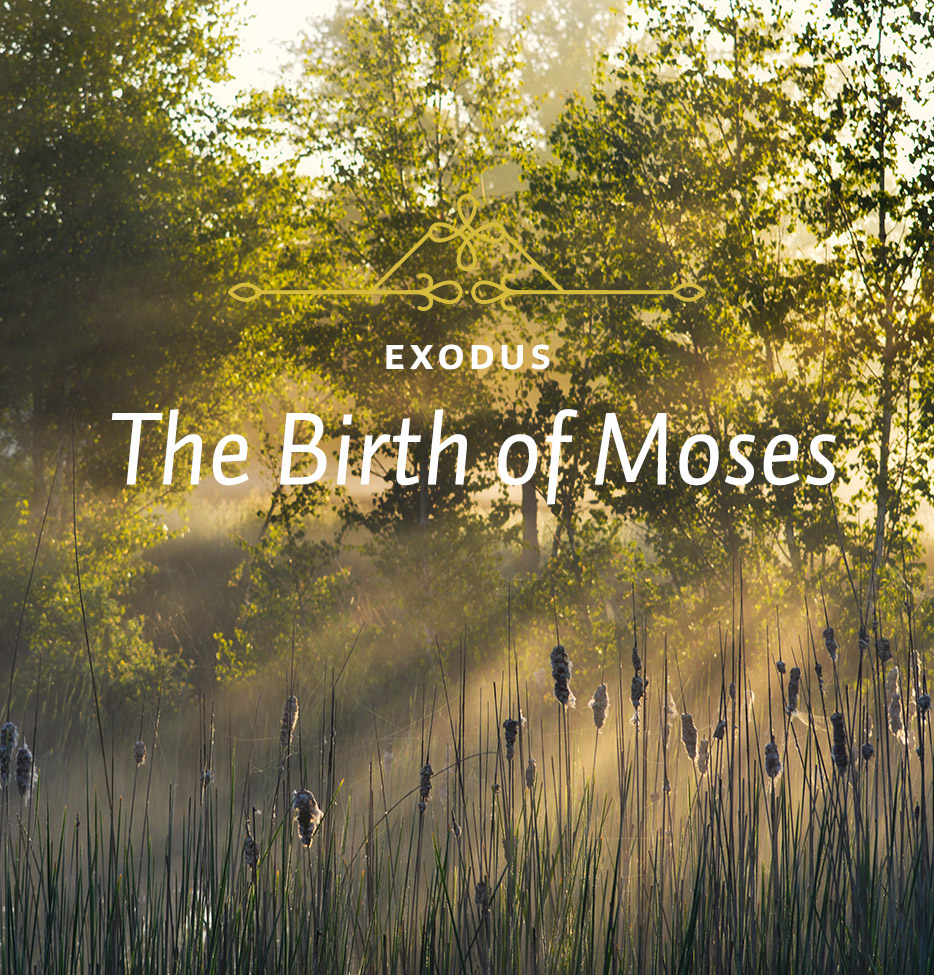There is a verse in Isaiah 44 which comes to my mind when I think of this period in Jewish history prior to the birth of Moses. God is speaking and He says to the people through Isaiah, “I will pour water on the thirsty land and streams on the dry ground” (Isa. 44:3). It’s usually that way with God. It’s when things are grim, when the earth is spiritually barren and dry, that the Holy Spirit moves and blessing follows. You think of the state of Israel at the time of the birth of Christ. The Jews were not faithful in following after God, and it was a time of oppression under the heel of Rome. And yet it was in those conditions that God sent Jesus Christ. Again, you think of the years preceding the Reformation. Those were dry, barren days in the history of the church—the church was virtually at the point of death, no vitality, riddled with superstition and immorality. And yet God poured out the streams of His blessing in the time of Martin Luther, and the Reformation followed.
Now that’s what we have here at the beginning of Exodus. The ground was dry in Egypt in the second millennium BC (literally of course, because it’s a dry land), but, far more significantly, in a spiritual way also. The Jews had been in Egypt for 430 years, and they have been oppressed for four hundred years. Yet it was in the midst of their oppression and misery that God sent Moses, the one who was to be the great emancipator and the lawgiver by the hand of God.
Now the dryness of the times was not merely to be seen in such outward things as their physical oppression. That was bad enough. Far more significant was the spiritual barrenness of the people themselves. If we look at the Jewish people at this time, not through the rosy eyes of romance, but through the sober spectacles of the Word of God, we are forced to conclude that not many of them in this period had retained a memory of the true God and were faithful to Him. The contrary was true.
It’s not surprising, in one sense. They had no written Scriptures as we do. There was no central place of worship. They didn’t even have an established priesthood, though probably the fathers functioned as priests within their households. But without any of these blessings, it’s easy to understand how they would easily forget the true God. We live in a day when people have all the blessings, and we still forget the true God! Many areas of the apparent church, the visible church, have become spiritually dead or moribund. So we’re not surprised, but nevertheless it was a very sad thing. The reason we know this is, first of all, because of the conduct of the people. We’re going to see that as we explore the story they weren’t faithful to God even after the exodus and the great miracles that He did on their behalf. But even if we didn’t get it through the examples of the way the people lived, the Bible is very explicit in indicating that the people really had fallen into a period of spiritual apostasy and idolatry before Moses came.
That idolatry was not only seen here, but continued to be a problem in the days of Joshua, and well beyond. In the book of Joshua, toward the very end, when the land is nearly conquered and Joshua has finished his work of leading the people in the conquest, he gives a parting sermon to the people. In the midst of it, in Joshua 24:14, he says, “Therefore throw away the gods your forefathers worshipped beyond the River [Euphrates], and in Egypt, and serve the LORD.” That one verse tells us not only that the people had a pagan past, but that they had hung onto it for generations. All throughout those four hundred years they were in Egypt, during the forty years of their wandering in the wilderness, and even the approximately ten years it took to conquer the land of Canaan, they were still clinging to their idols.
Another example comes from Ezekiel 20. Ezekiel was one of the later prophets. The elders of Israel had come to inquire of the Lord, but God refused to allow it. God said that the Israelites had rebelled against Him by not getting rid of the idols of Egypt after the Lord had delivered them from Egyptian bondage (Ezekiel 20:5-8).
So from this we have to conclude that the Jews were not a godly people at this time, if they ever were. They were an idolatrous people, and that was going to produce great problems, as Moses was going to find out in the years that he had to lead them. Yet we have to say that although the people as a whole had departed from the knowledge of the true God, God nevertheless always has a remnant who are faithful to Him even in dry times. In Elijah’s day there were seven thousand of them that hadn’t bowed down the knee to Baal. At the time of the birth of Jesus Christ, there were the faithful few that are mentioned in the Gospels: Joseph, Mary, Elizabeth, Simeon, Anna, and others. We’re told in the Gospel of Luke that Anna, when she saw the Christ child, went and spoke about Him to all those who were looking for redemption in Jerusalem. So there was a remnant in that time.






